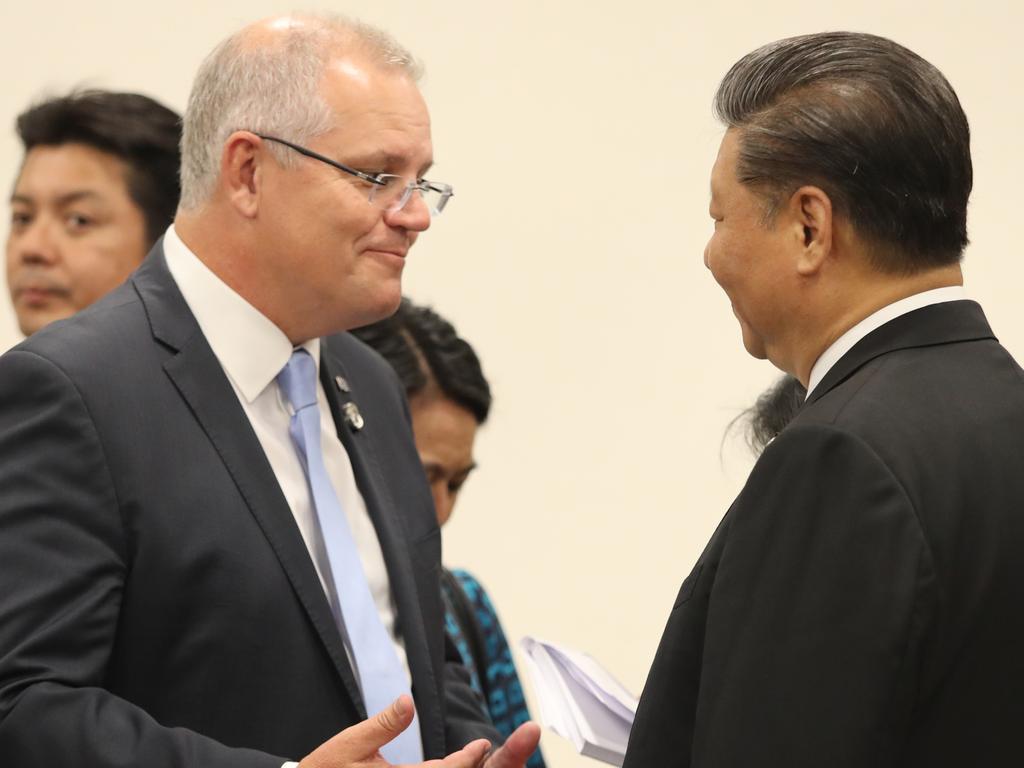Chinese firm UPM China altered A4 paper to beat anti-dumping rule
A Chinese company slightly altered A4 copy paper before it was exported to Australia to circumvent anti-dumping rules.

A Chinese company slightly altered A4 copy paper before it was exported to Australia to circumvent anti-dumping rules, a government investigation has found, marking a further stain on the relationship between Canberra and Beijing.
It was discovered that paper firm UPM China was altering the weight of the paper, lowering its grams per square metre (gsm) to avoid a previous anti-dumping ruling. The paper is typically used in offices and homes for standard printing.
The discovery was made after a complaint by an Australian paper manufacturer and included the help of the Australian Border Force to catch out the malfeasance.
The commissioner of the report has recommended that Industry, Science and Technology Minister Karen Andrews act now to stop the Chinese firm exploiting a loophole to dump paper in Australia by changing the existing anti-dumping notice to include the altered paper products.
The report by the Department of Industry, Science, Energy and Resources’ Anti-Dumping Commission released a statement of essential facts that uncovered the slight modification of paper goods, particularly A4 copy paper, by UPM China.
On March 30, Australian Paper lodged an application requesting the conduct of an anti-circumvention inquiry in relation to the original notices applying to A4 copy paper exported to Australia from Brazil, China, Indonesia and Thailand.
In its application, Australian Paper alleged that UPM China had slightly modified the goods exported to Australia from China in order to circumvent the applicable anti-dumping measures.
Specifically, the slightly modified A4 copy paper exported to Australia from China has a weight of 68gsm, which is not within the weight range of goods covered by the original anti-dumping notice of 70gsm-100gsm.
Following the initiation of the inquiry, the Anti-Dumping Commission forwarded an exporter and importer questionnaire to UPM Asia Pacific, UPM China and UPM-Kymmene given that UPM was identified in the application as the exporter of the circumvention goods from China. The Anti-Dumping Commission also identified UPM as the importer of the circumvention goods.
A company called Complete Office Supplies was the sole customer of the circumvented goods exported to Australia from China by UPM.

The commission later reviewed import consignments in the Australian Border Force import database dating from January 2015, and verified information provided by UPM in its response to the exporter and importer questionnaires.
“Based on this information, the commission found that UPM commenced exporting the circumvention goods in commercial quantities to Australia from China in May 2019,” the report says.
“Therefore, pursuant to section 48(2)(a) of the regulation, the commissioner is satisfied that the circumvention goods are exported to Australia from a foreign country (China).”
UPM said the circumvention goods were packaged in a biodegradable and plastic-free ream wrapper that was recyclable, and said the circumvention goods were the “first and only fully recyclable offering in the Australian market”.
“The commission reviewed exports of the goods the subject of the original notice, including by UPM, and product specification sheets relevant to the goods and the circumvention goods,” it said.
“The commission found that there are differences in physical characteristics (other than the weight or substance in gsm) such as thickness, level of whiteness, opacity and roughness between the circumvention goods and the goods the subject of the original notice exported by UPM, and by other exporters subject to the notices. These differences and variations are not confined to differences between the circumvention goods and the goods the subject of the notices — there are also differences and variations in these characteristics between the goods themselves.”
The Anti-Dumping Commission said it did not consider UPM’s claim that the circumvention goods were “fully recyclable” as indicative of their end use or purpose, and therefore did not consider that the recyclability of the packaging was indicative of any difference in each good’s end use.
“Based on the available information, the commissioner considers that the circumvention goods are used for the same purpose as the goods the subject of the original notice, which indicates that the circumvention goods are slightly modified,” the commission said.
The report said the Anti-Dumping Commissioner proposed to recommend that the minister alter the original notices to specify different goods (the circumvention goods) that were to be the subject of the original notices. It said the minister should “make alterations to the original notice to address the circumvention activity”.







To join the conversation, please log in. Don't have an account? Register
Join the conversation, you are commenting as Logout